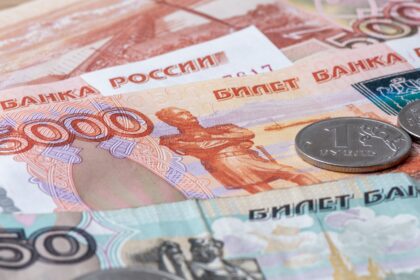Introduction
The International Monetary Fund (IMF) has sparked controversy across Europe with its decision to send staff to Moscow for the first time since Russia’s invasion of Ukraine. The planned review of Russia’s economy, scheduled for next week, has prompted significant dismay among European capitals, raising concerns about the potential implications of such a visit amidst the ongoing war.
IMF’s First Economic Review Since Ukraine Invasion
For the first time since the February 2022 invasion of Ukraine, the IMF is resuming its annual consultations with Russia. The review will involve IMF officials visiting Moscow to assess the state of the Russian economy, including meetings with key stakeholders. This process is part of the IMF’s Article IV consultations, a review mechanism applied to all member countries.
An IMF spokesperson explained that the annual review had been suspended due to the unpredictability of Russia’s economic data following the onset of war. However, the situation has since “settled” enough to allow the review to proceed.
European Protests Against the IMF Decision
The IMF’s decision has not been well-received in Europe. Nine European countries, including Lithuania, Latvia, Estonia, Finland, and Poland, have expressed strong dissatisfaction with the plan. In a protest letter sent to IMF Managing Director Kristalina Georgieva, they warned that the visit could damage the fund’s reputation, considering Russia’s ongoing conflict with Ukraine.
The finance ministers of these countries stressed their opposition to the IMF’s actions, questioning how the review could proceed when Russia has been accused of using economic resources to fuel its war efforts.
Economic Growth Amid Sanctions
Despite sanctions from the U.S. and the EU, Russia’s economy has shown growth, with a 4% annual increase reported in the second quarter of 2024. However, much of this growth has come from the manufacturing sector, which has shifted focus toward the war effort. Consumer spending has reportedly dropped by up to 10%, and sanctions have clouded the transparency of Russia’s trade data, making it difficult to assess the true state of the economy.
IMF Obligations and Criticism
The IMF is bound by its articles of agreement to conduct reviews, even for countries like Russia, despite the geopolitical tensions. The organisation has defended its decision, stating that it is a “mutual obligation” between the IMF and member countries to complete Article IV consultations.
Critics, however, argue that the visit could unintentionally support Russia’s economy in its war against Ukraine. Tim Ash, a Russia analyst at Chatham House, highlighted that such reviews often lead to policy advice, which in this case, could benefit Russia’s war-driven economy.
Calls for Suspension of IMF Membership
Some experts, like Robin Brooks from the Brookings Institution, have questioned whether Russia should continue to be a member of the IMF. Brooks emphasised the lack of transparency in Russia’s economic data, citing the use of “dark ships” to circumvent sanctions and conceal oil exports. The inaccurate or incomplete data provided by Russia raises concerns about the legitimacy of its IMF membership.
Conclusion
As the IMF prepares to conduct its first review of the Russian economy since the Ukraine invasion, Europe remains deeply concerned about the potential implications. The visit has reignited debates about Russia’s place in the global economic order, and whether the IMF’s actions could inadvertently lend support to a war-torn economy.






